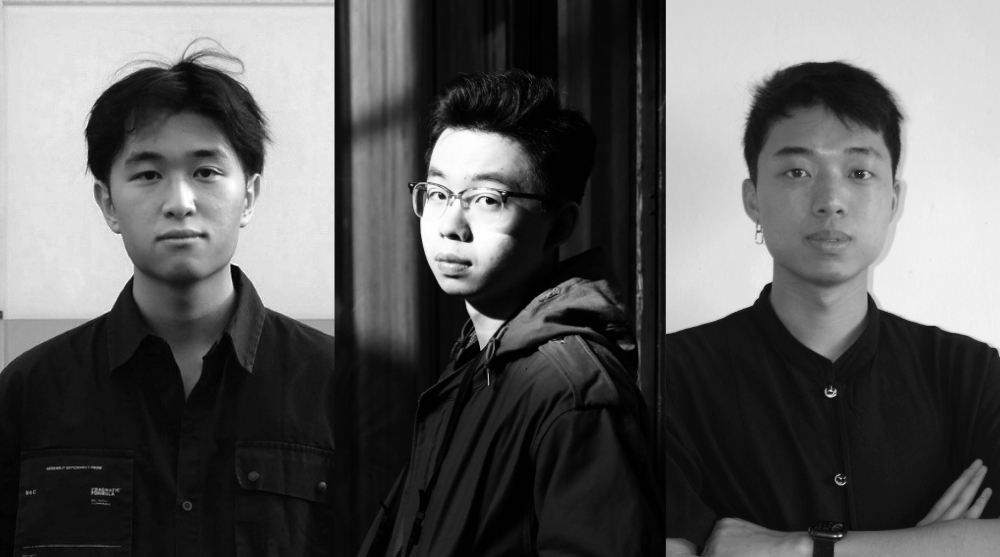We’d like to take the opportunity to introduce you to the Honorable mention winners of our "Los Angeles Affordable Housing Challenge" competition – Nicholas Chung, Peiyu Luo and Yifan Shen from United States!

Nicholas Chung, Peiyu Luo and Yifan Shen
Please tell us about your company (when it was founded, where it is based, how many employees, etc) Alternatively, if you do not have a company, please give us some insights on your own professional/academia background.
NC: I am an M.Des candidate at Harvard University, but graduated from Syracuse with a B.Arch and a minor in geography. My current scholarship is focused on the histories and theories of architecture and urban design in Asia after WWII.
PL: I am a fifth-year undergraduate student at Syracuse University, and I am originally from Guangzhou, China. My academic interest considers architecture and urban design as means to reactivate and reclaim the neglected yet contested urban fringe areas.
YS: I am a fourth-year undergraduate student at Syracuse University. I come from Shanghai, China. I am interested in the intersection of research and practice. My current interest lies in the public space in the informal settlements of the global south.
Brief information about the projects that you/your company have been involved with. For instance, what scale have you focused on/preferred, any significant projects where the company/ individuals have been Involved?
NC: Professionally, I have had some experience working at mid to large size architecture and urban design firms – mainly focused on cultural or civic projects. Academically, I’ve undertaken multiple research lab positions and fellowships. I was awarded Grand Prize for the 2022 Busan International Architecture Design Workshop and participated in numerous international exhibitions including the Busan Architecture Festival (2022), Shenzhen + Hong Kong Urbanism/Architecture Bi-City Biennalé (2022), and Affordable Art Fair London+Singapore (2020).
PL: As a student studying architecture, my previous design projects focus on researching and designing various scales of architectural design and its intertwined entanglement with society. My academic interest has closely resonated with the belief that architectural design can incite social change and reshape the community in which we live.
YS: My design interest is still formulating as I am only in the fourth year of studying architecture. Previously, I have designed radical fantasy projects that serve as provocative responses to the current-day crisis. I am interested in using projects as a tool for constructive imagination.
What does architecture mean to you and what is the role of an architect in your society?
NC: Architecture materializes desire, and as such leaves an index of the social tendencies of its inhabitants. In many ways the role of architecture is to mirror society to reveal alternative possibilities for how we live together. The architect bridges this social imaginary and occupied reality, whilst (hopefully) producing something of aesthetic value in the process. Architectural design is therefore the interlocking of research, engagement, innovation, and collaborative problem solving that brings about positive change.
YS: Architecture is the materialization of political, economic, and cultural forces. An architect should be aware of the socio-political context through extensive research and actively mediate in a collaborative, interdisciplinary space design process. In a contemporary context, responsible architects should respond to the climate crisis, think about the underserved population, and continue to explore the boundaries of design.
Why do you participate in architecture competitions?
Competitions occupy the middle ground between the rather wide disjunction between design school and practice. They simultaneously offer autonomy to individual designers who generally work (and think) eclectically as a group, but also more closely simulate the design timeline from 'conceptual to specific' that one experiences in professional practice. On a personal level, although Yifan, Lucas, and I are only one cohort apart, we realized that our experiences in the same school varied differently as a result of pedagogical changes and disruptions, such as the pandemic. This opportunity gave me some insight into a much more dexterous mode of working that they had to adapt to.
What advice would you give to individuals who struggle to decide whether it would be beneficial for them to participate in architecture competitions?
NC: It tends to be helpful to do it as a team – especially if you have colleagues that complement your own skillset. Competitions tend to be worthwhile but it’s important to be (self-)aware about what scope and scale is reasonably achievable. As a student it is helpful to sharpen your decision-making skills when given more autonomy and as a practitioner, it is a healthy way to reactivate the kind of design thinking that is less available in professional practice (generally speaking).
PL: I think every designer should enter architectural competitions. Consider them as an excellent opportunity to sharpen your ideas and incentivize your thinking. It offers different insights and extra excitement to your current study/practice.
YS: The competition was challenging for me at first. I never got any awards from the first couple of competitions. I continued to work on competitions because the act of rationally imagining and designing itself was an immense joy to me. To young students like me, I suggest finding someone you work well with and giving it a try!
Top 3 Reasons Why You Should Enter Architecture Competitions
Curious about the value of architecture competitions? Discover the transformative power they can have on your career - from igniting creativity and turning designs into reality, to gaining international recognition.
Learn more




























